This is the third and final instalment of our How to be a Traveler, not a Tourist series. The other articles discussed being honest about your reasons for traveling and leaving the tourist areas behind once you’ve seen the sights.
Pardon my blasphemy, but ‘do as the locals do’ is my ultimate travel commandment. This was not always the case, though. It wasn’t until a completely unexpected, yet particularly poignant, experience altered my travel style forever.
On May 28th, 2009 we rolled into Barcelona around 9am after a tremendously delayed flight from Nice and a horrendous and sleepless experience at a hotel near the airport. After roaming around the city for many hours and acquainting ourselves with the main tourist neighbourhoods, we were borderline delusional with exhaustion. So, like all good travelers, we attempted to delay the inevitable and have a drink.
As we nonchalantly sipped our drinks at the most cliche spot in all of Barcelona (I’m quite mortified to admit it was an “Irish” bar just off of Las Ramblas), I noticed a massive, exuberant crowd clad in blue, scarlet, and yellow bustling down the street. And then I heard them. Jovially chanting at the top of their lungs was the largest concentration of sports fans I had ever encountered outside of a stadium. They were exuberantly celebrating the win of their beloved FC Barcelona over Manchester United the night earlier, giving them the title of UEFA champions.
In a rare moment of spontaneity, I threw down some euros for our drinks and we joined the rowdy procession. We weren’t sure where we were going and what would happen once we got there, but the atmosphere was so enticing that we couldn’t sacrifice this experience. We followed the crowd into the metro, wedging ourselves onto a train while trying to keep up with the football chants that everyone was wholeheartedly singing. We eventually gathered that we were all en route to the Barcelona FC stadium, Camp Nou, to welcome the players back from Rome where the final match took place.
A group of locals took us under their wing, imparting on us the personal importance of this win, bringing us to the best spot to view the celebration, and attempting to teach us the many local cheers. It was a joyous and proud moment for the packed stadium of fans and looking around we could not see any other non locals. It was an unexpected adventure that instilled in us the importance of experiencing aspects of local life, something completely unobtainable from a guide book. Call it divine intervention.
Check out neighbourhoods that are popular with locals
In the other articles of this series, I explained that it’s okay to visit popular tourist attractions, but that it is just as important to explore other, less visited areas once you’ve finished. In pretty much every large city the area that is the most engaging for locals is not where the tourists are. Many residents would prefer Travestere over Piazza Navona in Rome, The Marais over Champs-Élysées in Paris, or Dalston instead of Leicester Square in London.
A great way to experience a city as a local is by renting an apartment for your visit. Short term rental sites such as Airbnb and HomeAway offer a wide range of accommodations from the economical to the opulent. As you’ll be staying in someone’s home, you’ll often find yourself in more residential areas of the city, providing a unique opportunity to live as a local. An added bonus is that most hosts are a great, and unbiased, resource of information on restaurants, attractions, and events which will certainly differentiate your experience. You can read more about this in: Hotels vs. Hostels and Everywhere in Between.
Another way to find interesting neighbourhoods is to do some research before you travel. One of my favourite resources is Airbnb’s Neighbourhood Guides, which I can best describe as photo essays portraying the individualities of various neighbourhoods in a given city. They give you a visual sense of a neighbourhood with some practical information, which can quickly help you identify specific areas of the city. The incomparable Trip Advisor is always a great source of information as well, especially in the forum sections where locals and seasoned traveler’s are always willing to answer an inquisitive traveler’s questions.
Always apply the majority rule to restaurants
If more than half of the people in a restaurant are tourists, don’t eat there. This golden rule of dining was passed down to me by another traveler and it has saved me from many mediocre meals over the years. I used to find myself gravitating towards centrally located, busy restaurants (noticing too late that they were mostly tourists) only to discover that they were overvalued and underwhelming. At that time, I equated quantity with quality, failing to grasp that a busy restaurant and a good restaurant are not mutually exclusive. I have had some of my most memorable dining experiences since I embraced the local majority rule, and it’s worked beautifully across the broad spectrum of food options, from fine dining to street food and everywhere in between.
So you’ve followed this rule and found a brilliant local spot, but now you have decide on what to order. Just because a restaurant has a staunch local following, doesn’t necessarily mean that every dish they serve is phenomenal. Look to the local patrons to see what they’re ordering or ask your server what the specialties are which set them apart from other establishments. The value of this became apparent when we were in San Sebastian, traversing the old town for delectable pintxos (bite-sized tapas). There is a high density of pintxos bars in this area, adored by locals and travelers alike, all with a large menu of similar offerings. We quickly observed though that everyone was eating one particular pintxos in each bar, the house specialty, and would move along to the next spot once consumed. After this realization, we would follow the pack and choose what others were enjoying instead of ordering something that appealed to us right off the bat. We tried such a wide variety of pintxos that we would never have chosen on our own, which truly elevated our experience as a result.
Find out why locals love their city
Often what makes a city special are the quirky and offbeat attractions that locals are proud to call their own and tourists are usually oblivious to. Using my hometown of Toronto as an example, it’s probably been fifteen years since I visited our most popular landmark, the CN Tower. That’s not what makes me love my city. It’s the indie galleries on Queen West, the up & coming restaurants in Leslieville, and unique events such as Cask Days that make Toronto special. When you catch a glimpse of these moments while traveling, you develop more meaningful and memorable experiences.
While you shouldn’t expect these attractions to be featured in traditional guide books, it may be even less likely that you’ll stumble upon them coincidentally, unless you luck out like we did in Barcelona. Try to find local city guides before you travel, such as Spotted by Locals where residents share favourites in their city from entertainment to dining to cultural events. Or if you find yourself in a city with no idea what to do, try a local event guide or magazine which often lists cultural happenings in the city. If you’re still at a loss, ask around – check at your hotel/hostel/b&b for some locally tailored advice or just strike up a conversation at a neighbourhood shop or cafe.
Get out of the city
Many city dwellers will tell you that their region’s true culture resides in the traditional towns outside of a city’s borders. These outlying areas are the true heart of their districts, the origins of what makes a particular country/region/city endearing in the first place. Travelers flock to regional capitals and dominant cities to find this authentic character, but often it has been distorted by decades of tourism. While there are certainly unique neighbourhoods within these cities that are worth seeking out, usually developed in defiance of this hyper tourist degradation, they typically offer a hyper modern snippet of local culture.
Supplementing your city experiences with less urban locales will give you a deepened perspective of local life. These spots usually experience less tourism, thus have not been forced to cater to tourists, and embody the qualities one usually equates with a certain region. One way that we like to incorporate this into our travels is to rent a car for a day or weekend to explore more rural areas around a city, such as our day trip from Galway into Connemara or our weekend trip from Madrid into the Picos de Europa. I use Trip Advisor most often to get ideas for local diversions but simple searches in Google usually finds relevant information as well.
This concludes the How to be a Traveler, Not a Tourist series. What’s your advice on being a traveler versus a tourist? Share your experiences and comments below!
Make your next trip the best one.
Departful is a full service travel agency creating truly exceptional travel experiences that are 100% personalized to you. Wherever you’re going, whatever your interests, we help you plan the perfect trip.
Lauren
Lauren co-founded Departful in 2012 and is the Managing Director of Departful Media. Since then she has worked between North America and Europe and has published content in partnership with a variety of tourism boards and businesses based around the world. Lauren is currently based in Toronto, Canada.
10 Comments
Add comment Cancel reply
This site uses Akismet to reduce spam. Learn how your comment data is processed.


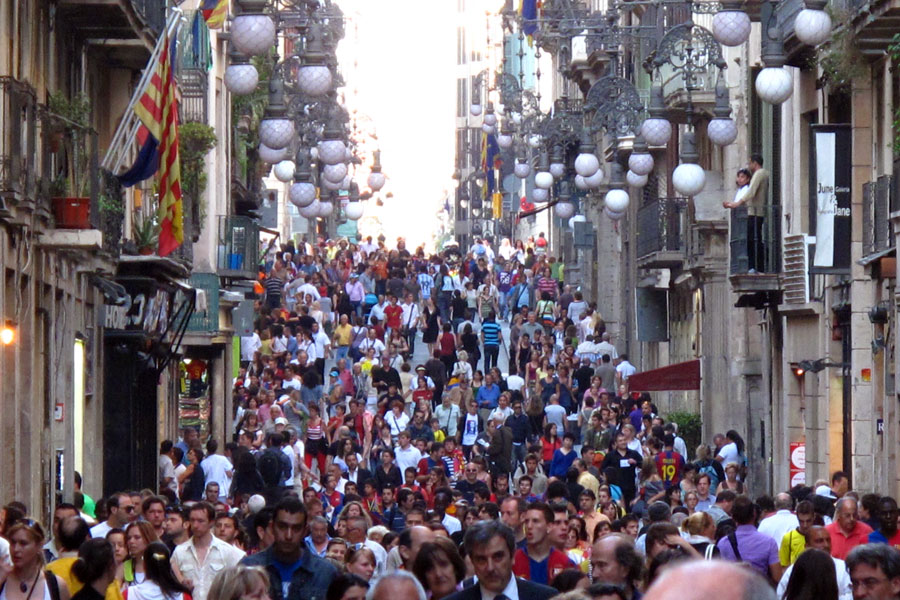
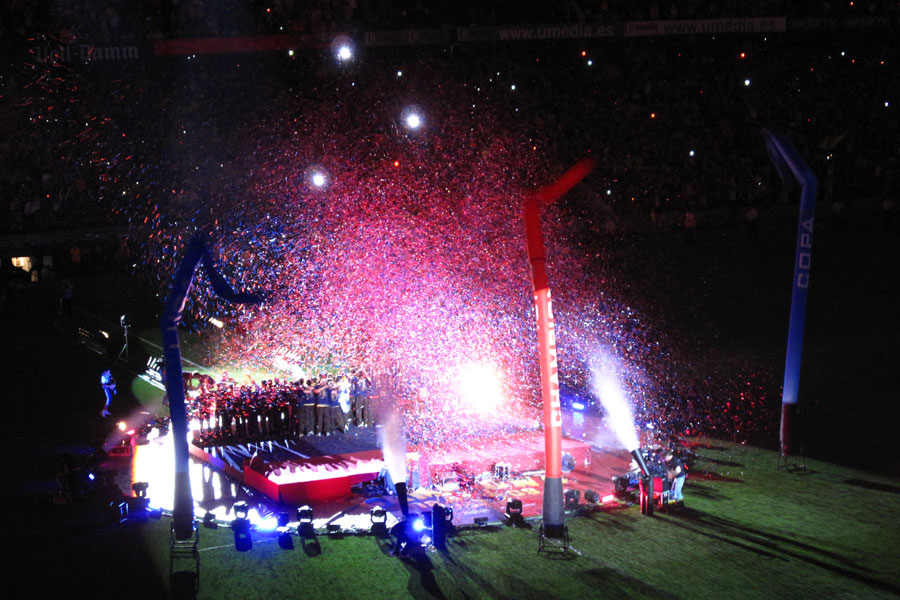
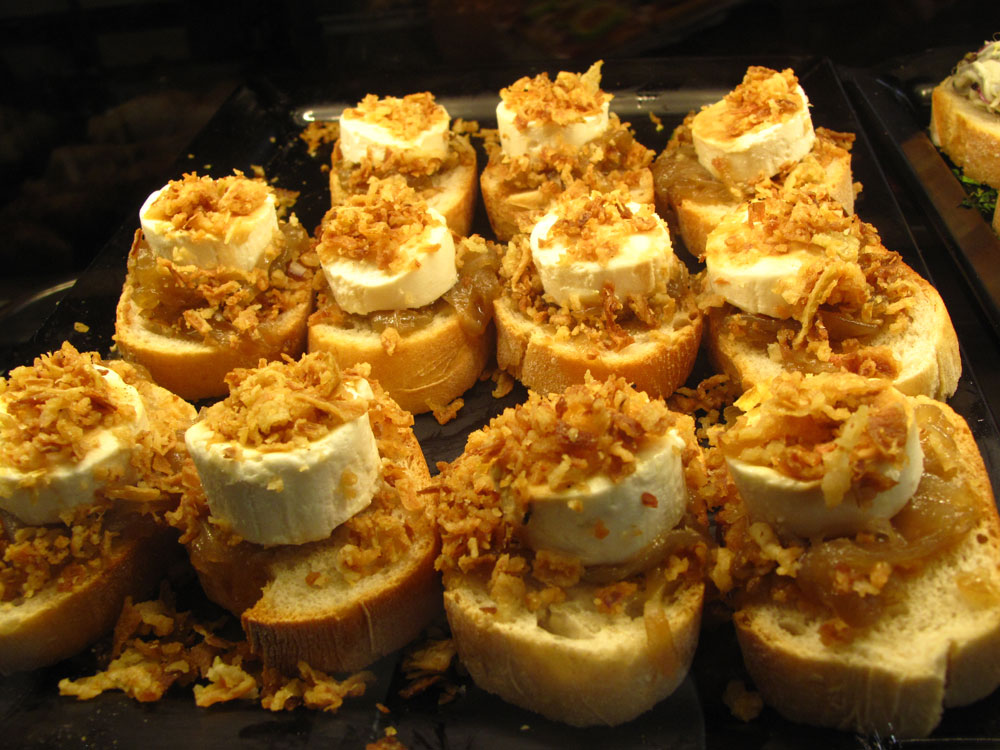
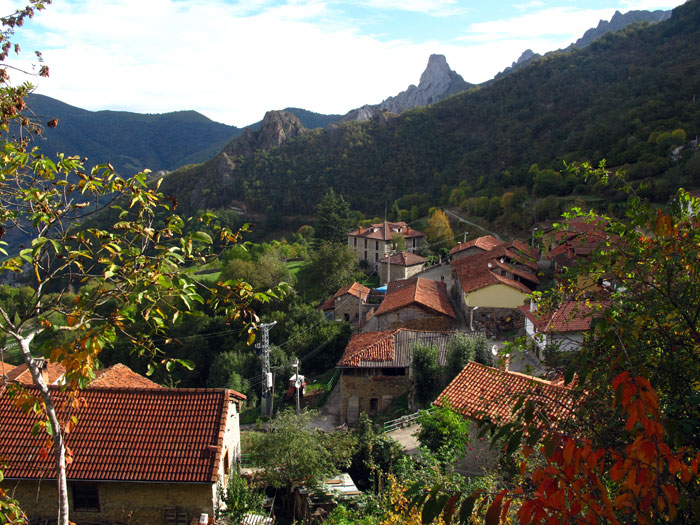
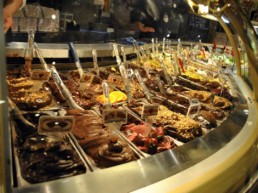

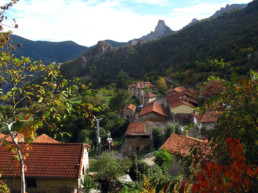
I agree with everything you’ve said there. The tourist restaurants are overpriced and the food is rubbish. Eat with the locals.
@Louisa – You’re so right. It’s amazing how many people think they’re eating locally but don’t realize it’s a total tourist trap.
Hi, I agree on everything with you, actually my travel blog claim is “be a traveller, not a tourist” 😉
http://www.blocal-travel.com
I usually use also social networks to get in touch with locals with similar interests (for example I’m passionate about street art and I always ask locals where can I find some graffiti) it is so easy to get in touch with alike locals nowadays!
@Giulia blocal Totally agree with you – social media makes it super easy to connect and you can always find someone local with great advice. Nice blog by the way! I’m assuming you’re from Rome – you must be an expert at being a traveler and not a tourist!!
I completely agree and use this as my travel mantra as much as I can when we have ticked off the ‘must-sees’ off each area we were at. I try to please my travel partners whilst also trying out as many local experiences as we can in each new place.
Great advice. I always try to get away from the main tourist areas, eat at local-favored places, and even take a day trip to a nearby destination that’s “off the beaten path.”
Awesome advice, Lauren! The majority rule for restaurants and food is a great one that leads to fun and unique food adventures that are truly memorable. Whenever I travel, I look to connect with locals who are ideally like-minded in addition to researching great places to see, visit and/or eat at. I’ve found this to be rewarding and, at times, exhausting.
When I realized that most people want to experience places like locals, but lack the time (or energy) to do the research and networking, I created YourLocalMe.com to solve the problem for travelers. We’re starting by focusing on travelers visiting San Francisco; We plan to expand once we’ve validated our approach and made the experience great for the large majority of users.
What are your thoughts on our solution, and how do you feel we can make our service exceptional for travelers like yourself and your readers?
We were in San Sebastian from 10/2 to 10/10. Our “Castillan” is rusty at best, but we did well. It was amazing how many people spoke English! We found the restaurants near the Museum to be great! We went to La Cepa three times as my “foodie snob” better half loved the skewers. The siestas took a big adjustment on our part. We are so used to eating/shopping at the time when many shops are closed. As an asthmatic, I thought that the smoking would bother me more; I used my inhaler once. I am not a walker, but things are minutes away from each other. I have never felt so safe anywhere walking around at 1 am! We managed to make a trip over to France for afternoon lunch at Kano. They appreciated my attempting to speak French. Madrid is so busy and beautiful! Being of a darker hue (black), the stares were less intense than the ones I get traveling in the US. The weather (upper-70s to mid-50s) was very comfortable as it mirrors what we are dealing with now here in NC.
[…] of the many traveling rules I’ve been trying to adopt is to do as the locals do; to be travelers, not as tourists. Of course I couldn’t help myself from exploring the […]
[…] To ensure a good and affordable meal, follow the locals. If more than half of the people in a restaurant are tourists, don’t eat there. Years ago, this golden rule of dining abroad was shared with me by a fellow traveller and it has since saved me from many mediocre meals. Remember, just do as the locals do. […]